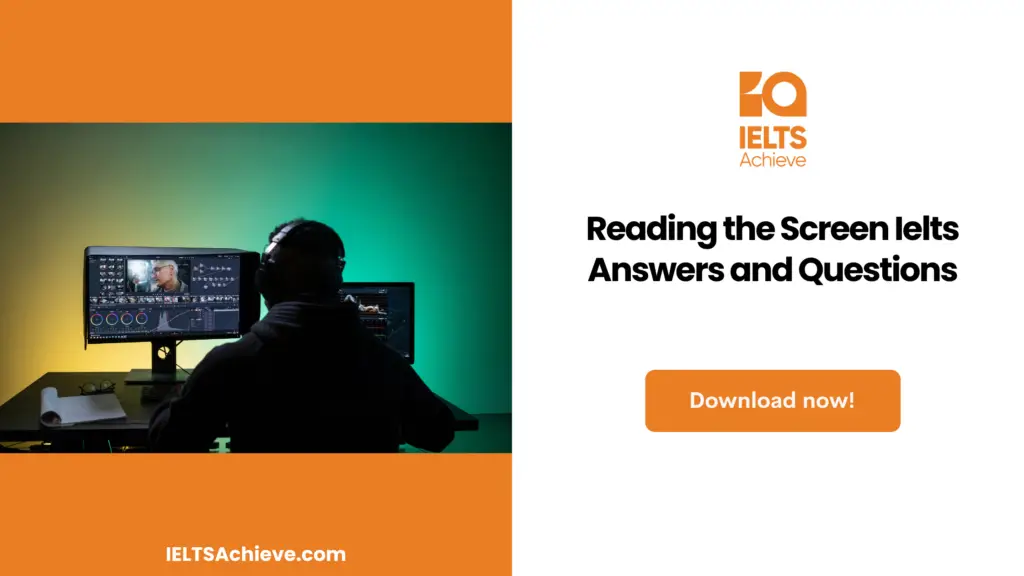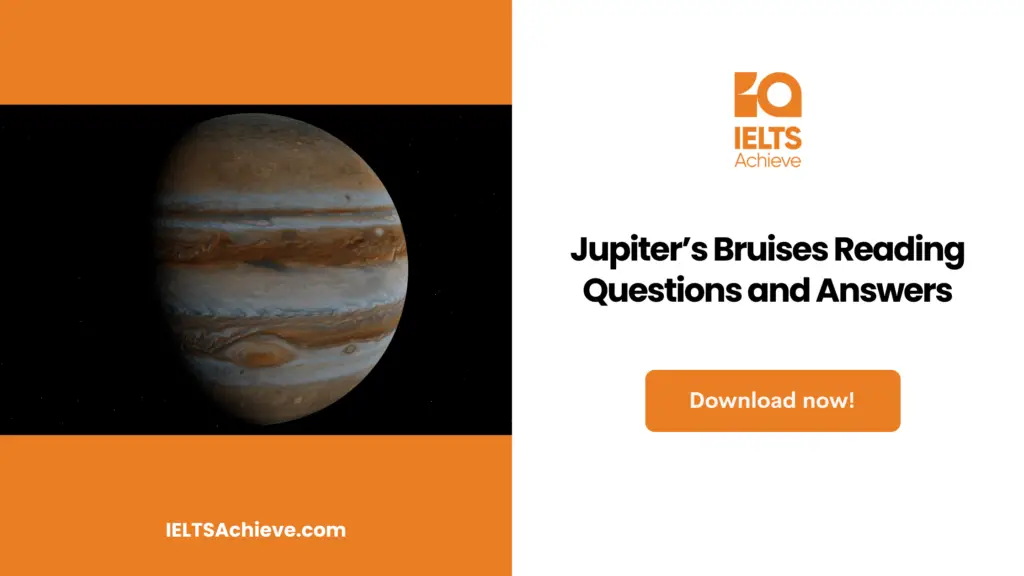The Blog post contains the following IELTS Reading Questions:
- IELTS Reading Multiple Choice Questions
- IELTS Reading Yes/No/Not Given
- IELTS Reading Sentence Completion
Stay informed and prepared for success – Explore our comprehensive Reading Test Info page to get valuable insights, exam format details, and expert tips for mastering the IELTS Reading section.
IELTS Reading Passage – Reading the screen

Reading The Screen
Is electronic media aggravating illiteracy and rendering our kids stupid? According to Colin McCabe, though, they have the capability of making mankind genuinely literate.
Literacy is at the center of one of the most intensely charged debates in the field of education. On the one hand, a significant group of people is certain that traditional writing and reading abilities are decreasing. On the other hand, a vast portion of progressives argues that literacy is far more complex than the basic technical skills of reading and writing. This second perspective is backed by the majority of relevant academic material published in the last two decades. According to these works, literacy is only understood in the context of its social and technical environment. For instance, in Renaissance England, there were significantly more individuals who could read than write. Within reading, there was a difference between people who could read print and those who were able to handle the difficult job of reading manuscripts. Our current debate about the “crisis in literacy” is better understood when we have a basic understanding of these previous eras.
If you compare tabloid newspapers from now with those from five decades ago, you’ll see a significant reduction in vocabulary and simplicity of syntax, presenting evidence that some parts of reading and writing have declined overall. However, the image is not consistent and does not clearly show the obvious difference between literate and illiterate, which had been deemed sufficient ever since the middle of the 19th century.
While reading a certain quantity of writing is as important as it ever was in industrial society, it is questionable if complete knowledge of either is as important as it was three or four decades ago. Television has progressively replaced print as a source of current information, despite print still having a significant amount of authority in this regard. The telephone has hampered people’s ability to write letters fluently, and research indicates that for many individuals, the only writing they do outside of academic education is to make shopping lists.
Some automobile manufacturers have decided to provide their instructions to mechanics in the form of a video clip rather than in the form of a booklet. This decision might be interpreted as marking the end of any automatic connection between industrialization and literacy. However, an increasing number of individuals also rely on their writing for a livelihood and are now better compensated than before. Schools are commonly perceived as places where the book reigns supreme, with very little space for movies, television, or recorded sound; nevertheless, it is unclear if this hostility is justified. While reading and writing skills aren’t always required to watch television, they are needed to create programs.
Those employed in the new media are by no means illiterate. The traditional discrepancies between old and modern media are insufficient for helping children these days understand the world. The screen, which was formerly totally devoted to the image, now has a central position for the written text, courtesy of the computer. There are even anecdotal reports that children are learning to read and write so that they can use the Internet. There is no reason why new and old media cannot be incorporated into schools to educate students with the skills they need to be economically successful and politically enfranchised.
Nonetheless, a literacy crisis still exists, and it would be stupid to ignore it. Understanding that literacy may be decreasing as it becomes less important in some parts of daily life is not equivalent to acquiescing to this situation. The production of academic subjects using new technology might provide a significant boost to literacy. How should this modern technology be implemented in schools? It is not adequate to ask that every classroom be installed with computers, camcorders, and editing suites; if they are not properly incorporated into the educational system, they will be underused. According to existing evidence, this is what happens to the majority of information technology used in classes. Similarly, even though media studies have now become a part of the national curriculum and an increasing number of students are clamouring to take these courses, teachers are still unsure about both techniques and objectives in this field.
The teachers are not accountable for any of this. To decide how to successfully integrate the new technologies into the classroom, the entertainment and information sectors must be engaged in a debate with academic institutions.
Nowadays, a lot of individuals hold the pessimistic opinion that new media are undermining traditional capabilities and weakening critical reasoning. Although it may be true that earlier generations were more literate, this was only true for a limited portion of the population if we use the pre-19th century concept of the term. The term “literacy” was first used in the 19th century to refer to the split between reading and writing that comes from a thorough understanding of literature. Reading and writing became abilities that could be acquired independently from fully participating in cultural heritage as a result of educational changes made in the 19th century.
In addition to pointing to a futuristic cybereconomy, the new media now make our cultural history accessible to the entire nation. The majority of children’s primary source of exposure to these treasures is television. Our literary history has probably never really been accessible to or sought out by more than 5% of the population, and it has most definitely never been available to more than 10%. However, the public service tradition of British broadcasting, which links new and old media, has made our literary tradition accessible to everyone.
Unlock your full potential in the IELTS Reading section – Visit our IELTS Reading Practice Question Answer page now!
Recommended Questions:
Renewable Energy IELTS Reading Question with Answer
Reading the screen IELTS Reading Questions
Questions 1 – 4
Choose the appropriate letters A – D, and write them in boxes 1 – 4 on your answer sheet.
1. The author claims that the most significant problem faced by schools nowadays is
- Managing students’ vastly differing literacy levels.
- how to teach reading and writing skills efficiently.
- how to effectively implement technology into classroom learning.
- obtaining the financial resources required to purchase technological equipment.
2. When addressing the debate based on literacy in the education sector, the author states that
- there is evidence of a relationship between evidence and external factors.
- there are conflicting but equally convincing arguments.
- over the past two decades, there has been an improvement in academic work.
- children’s ability to read and write has deteriorated in the past.
3. The author suggests towards the end of the passage that
- you can not divorce culture and literature.
- our accessibility to cultural knowledge is anticipated to increase.
- the word “literacy” hasn’t been very beneficial.
- there is around 10 percent of the population who do not read literature.
4. The author’s main point in the fourth paragraph is
- there is no requirement of reading for people who do manual jobs.
- every innovation has advantages as well as drawbacks.
- The printed text is acquiring as well as losing its authority.
- Those who fancy writing, are offered the best careers by the media.
Ready to improve your performance in Multiple Choice Questions (MCQs)? Click here to access our comprehensive guide on how to tackle MCQs effectively in the IELTS Reading section.
Questions 5 – 10
Do the following statements agree with the views of the writer in the Reading passage? In boxes 5 – 10 on your answer sheet write,
YES if the statement agrees with the writer
NO if the statement contradicts the writer
NOT GIVEN if it is impossible to say what the writer thinks about this.
5. The illiteracy rates are on the increase.
6. To work in television, a person requires a proficient literacy level.
7. Our literacy skills must attain the same level of expertise as seen in the past.
8. Analysing literacy levels is far more complex than it used to be.
9. Computers have a negative influence on literacy in classroom learning.
10. Professional writers receive better compensation now as compared to the past.
Want to excel in identifying the writer’s views and claims? Click here to explore our in-depth guide on how to accurately determine Yes, No, or Not Given in the IELTS Reading section.
Questions 11 – 13
Complete the sentences below with words taken from the Reading Passage. Write your answers in boxes 11 – 13 on your answer sheet. Use NO MORE THAN THREE WORDS for each answer.
11. To demonstrate the overall decline in certain sectors of literacy, the writer has used the example of _____.
12. According to studies, most people only write _______, after finishing school.
13. The proficient readers were able to read ________ in Renaissance England.
Enhance your sentence completion skills in the IELTS Reading section. Click here to access our comprehensive guide and learn effective strategies for filling in missing words or phrases in sentences.
Unlock your full potential in the IELTS Reading section – Visit our IELTS Reading Practice Question Answer page now!
Recommended Questions:
Renewable Energy IELTS Reading Question with Answer
Reading the screen reading answers
1. C
2. A
3. B
4. C
5. Not Given
6. Yes
7. No
8. Yes
9. No
10. Yes
11. (tabloid) newspapers
12. shopping lists
13. manuscripts

We hope you found this post useful in helping you to study for the IELTS Test. If you have any questions please let us know in the comments below or on the Facebook page.
The best way to keep up to date with posts like this is to like us on Facebook, then follow us on Instagram and Pinterest. If you need help preparing for the IELTS Test, join the IELTS Achieve Academy and see how we can assist you to achieve your desired band score. We offer an essay correction service, mock exams and online courses.

